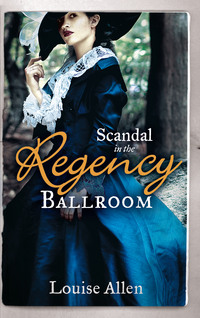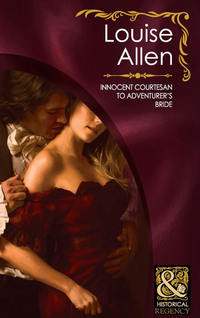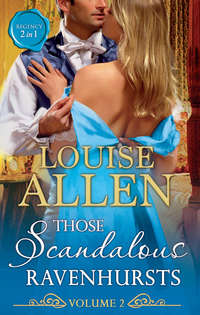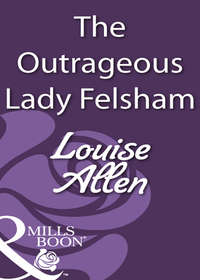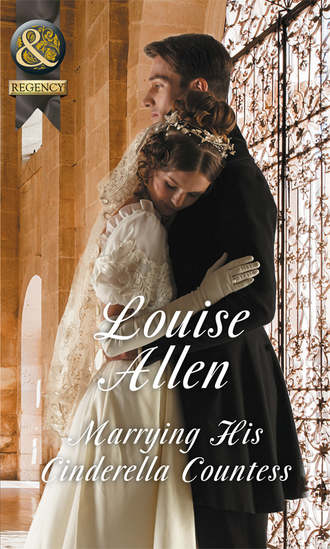
Полная версия
Marrying His Cinderella Countess
Her figure went up and down, with the emphasis on up, and showed little interest in anything but the mildest in-and-out. Even so, his ribs had suffered enough, and lifting plain women into his arms held no appeal.
He studied the pale oval of her face, dusted with a spectacular quantity of freckles that no amount of Lotion of Denmark, or even lemon juice, would ever be able to subdue. Her hair was a bird’s nest—a flyaway mass of middling brown curls, ineptly secured with pins. The wide hazel eyes, their irises dark and dilated with shock, were probably her best feature. Her nose was certainly rather too long. And there was the limp... But at least she had managed not to swoon.
The girl came back with a tea tray and he gestured abruptly for her to pour. ‘Put sugar in your mistress’s cup.’
‘I do not take sugar.’
‘For the shock.’ He took a cup himself and gulped it sugarless, grateful for the warmth in his empty, churning gut.
The maid went and sat in a corner of the room, hands folded in her lap. He could feel her gaze boring into him.
Miss Lytton lifted her cup with a hand that shook just a little, drank, replaced it in the saucer with a sharp click and looked at him.
‘Tell me what happened.’
Thank heavens she was not some fluffy little chit who had dissolved into the vapours. Still, there was time yet for that...
‘I was at the Adventurers’ last night, playing cards with Lord Anterton and Sir Peter Carew and a man called Crosse. I was winning heavily—mainly against Crosse, who is not a good loser and is no friend of mine. We were all drinking.’
Blake tried to edit the story as he went—make it somehow suitable for a lady to hear without actually lying to her. He couldn’t tell her that the room had smelled of sweat and alcohol and candlewax and excitement. That Anterton had been in high spirits because an elderly relative had died and left him a tidy sum, and he and Carew had been joking and needling Crosse all evening over some incident at the French House—a fancy brothel where the three of them had been the night before.
Blake had been irritated, he remembered now, and had wished they would concentrate on the game.
He had just raked in a double handful of chips and banknotes and vowels from the centre of the table and called for a new pack and a fresh bottle when Francis Lytton had come up behind him—another irritation.
‘Your stepbrother appeared, most agitated, and said he wanted to talk to me immediately. I was on a winning streak, and I certainly did not intend to stop. I told him he could walk home with me afterwards and we would talk all he wanted to then.’
Miss Lytton bit her lip, her brow furrowed. ‘Agitated?’
‘Or worried. I do not know which. I did not pay too much attention, I am afraid.’
‘You were drunk,’ she observed coolly.
It was a shock to be spoken to in that way by a woman and, despite his uneasy sense of responsibility, the flat statement stung.
‘I was mellow—we all were. And we were in the middle of a game in which I was winning consistently—Lytton should have seen that it was a bad time to interrupt. We began to play with the new pack. Crosse lost heavily to me again, then started to shout that I was cheating, that I must have cards in my cuffs, up my sleeves. That I had turned away to talk to your stepbrother in order to conceal them.’
That red face, that wet mouth, those furious, incoherent accusations.
The man had scrabbled at the cards, sending counters flying, wine glasses tipping.
‘Cheat! Sharper!’
Everyone had stopped their own games, people had come across, staring...
‘I told him to withdraw his accusations. So did the others. He wouldn’t back down—just kept ranting. It seems he was on the brink of ruin and that this bout of losses had tipped him over the edge. He was so pathetic I didn’t want to have to call him out, so I stripped off my coat, tossed it to him to look at. He still accused me of hiding cards. I took off my waistcoat, my shirt. Then, when he overturned the table shouting that I had aces in my breeches, I took those off as well. Everything, in fact. He’d made me furious. Francis stood behind me, picking things up like a confounded valet. People were laughing...jeering at Crosse.’
He paused, sorting out the events through the brandy fug in his head, trying to be careful what he told her.
Everyone had been staring, and then Anterton had laughed and pointed at Blake’s wedding tackle, made some admiring remark about size. ‘Hainford’s hung like a bull!’ he’d shouted. Or had it been a mule?
He had laughed at Crosse.
‘Not like your little winkle-picker, eh, Crosse? The tarts wouldn’t laugh at his tackle like they did at yours last night at the French House—would they, Crosse?’
‘Crosse fumbled in his pocket, dropped something, and went down on his knees, groping for it. Then I saw it was a pistol. He was shaking with rage.’
I thought I was going to die—stark naked in the wreckage of a card game.
As the club secretary had pushed his way to the front of the crowd Blake could recall wondering vaguely if you could be blackballed for being killed in the club like that.
Conduct unbecoming...
‘Crosse pulled the trigger. The thing was angled upwards, so the bullet scored the track you’ve seen across my ribs and hit Francis, who was still standing behind me.’
Miss Lytton gave a short gasp, cut off by a hand pressed to her mouth. She was so white that the freckles across her nose and cheeks stood out as if someone had thrown a handful of bran at her.
‘He really is dead?’ she managed.
Very. You don’t live with a hole like that in you.
‘It must have been instant. He will have felt a blow to the chest, then nothing.’ He thought that was true—hoped that it was. Certainly by the time he’d knelt down, Lytton’s head supported on his knees, the man had been gone.
‘Where is he now?’
She was still white, her voice steady. It was the unnatural control of shock, he guessed, although she didn’t seem to be the hysterical type in any case. She had dealt with a bleeding man on her doorstep calmly enough. An unusual young lady.
‘At the club. There was a doctor there—one of the members. We took him to a bedchamber, did what was necessary.’
They had stripped off the wreckage of Lytton’s clothes, got him cleaned up and dressed in someone’s spare nightshirt and sent for a woman to lay him out decently before any of his family saw him.
‘I have his watch, his pocketbook and so on, all safe.’
‘I see.’
Miss Lytton’s voice was as colourless as her skin, and that seemed to have been pulled back savagely, revealing fine cheekbones but emphasising the long nose and firm chin unbecomingly.
‘He must come here, of course. Can you arrange that?’
He could—and he would. And he would try and do something about that mass of blood-soaked papers with a hole through the middle that had been stuffed into Lytton’s breast pocket. There was no way he could hand those back as they were.
‘Certainly. It is the least I can do.’
The dowdy nobody of a woman opposite him raised her wide hazel eyes and fixed him with an aloof stare.
‘I would say that is so. If you had listened to your friend when he was obviously anxious about something, instead of drunkenly goading that man Crosse, then Francis would not be dead now. Would he, my lord?’
Chapter Two
Her hostility had hit home—visibly. Ellie suspected that if he had been himself, alert and not in pain, Lord Hainford would have betrayed nothing, but she saw the colour come up over his cheekbones and the bloodshot grey eyes narrow.
‘If your brother had not come to the club, yes, he would be alive now, Miss Lytton.’
‘My stepbrother Francis is...was...the son of my mother’s second husband, Sir Percival Lytton. I took his name when she remarried.’
She could hardly recall her own father, the Honourable Frederick Trewitt, an abrupt man who had died when she was eight. Her mother’s remarriage had given them much-needed financial stability, although Sir Percival had shown little interest in his stepdaughter at first—so plain and quiet, where her mother had been vivid and attractive.
Not at first.
As for Francis, three years her senior, he had ignored her until, his father and stepmother dead, he had needed a housekeeper.
She had felt no affection for him, waiting for him to turn out like his father, but as time had passed and he’d shown her nothing but indifference she had begun to relax—although never to the point of leaving her bedchamber door unlocked.
The use she could be to her stepbrother had given her the only status that Society allowed a plain young woman of very moderate means and no connections—that of respectable poor relation.
‘You were close, of course. This must be a dreadful shock for you...a great loss.’ The Earl had reined in his irritation and was clearly ransacking his meagre store of conventional platitudes. ‘I quite understand that you are distressed.’
‘If my stepbrother had removed himself to some remote fastness and I had never seen him again I would not have shed a single tear, my lord,’ she said. ‘That does not mean I do not grieve the fact that he met his end in such sordid circumstances, thanks to someone else’s selfish neglect.’
She would have felt pity for any man killed like that, let alone a relative.
‘Madam, neither the place nor the circumstances were sordid, and Lytton was in a club where he might have safely passed the time with any number of acquaintances while he waited for me to be free.’
Hainford got to his feet and regarded her with something very like hauteur.
‘That he chose to insinuate himself into the middle of a fracas was entirely his choice, and the result was a regrettable accident. Unless you have an undertaker in mind I will engage a respectable one on your behalf. I will also establish how the Coroner wishes to proceed and keep you informed. Good day to you.’
Polly scrambled to reach the front door before he did, and came back a moment later clutching a small rectangle of card. ‘He left this, Miss Lytton.’
‘Put it down over there on my desk, please. I know perfectly well who he is.’
She had made it her business to find out the identity of the grey-eyed man whom Francis had idolised. William Blakestone Pencarrow, third Earl Hainford, was twenty-eight, owned lands in Hampshire, Yorkshire and Northamptonshire, a London townhouse of some magnificence in Berkeley Square and a stable of prime bloodstock.
He was also in possession of thick black hair, elegantly cut, a commanding nose, rather too large for handsomeness, an exceptionally stubborn chin and eyes that were beautiful even when bloodshot. His shoulders were broad, his muscles, as she was now in a position to affirm, superb, and he easily topped Francis’s five feet eleven inches.
To Francis, silently worshipping, he had seemed a god—a non-pareil of style, taste and breeding who must be copied as closely as possible, whatever the cost.
Altogether Hainford had seemed the perfect hero for her book. It did not matter in the slightest that in real life he had proved to be impatient, arrogant, self-centred and shameless.
Something fell onto her clasped hands. She looked down at the fat drop of water that ran down to her wrist.
Poor Francis, she thought, feeling sympathy for her stepbrother for the first time in her life. He deserved something more than one tear from her. He deserved that she exert herself for this final time for his comfort and dignity. He hadn’t been able to help being his father’s son, and probably hadn’t been able to help being insensitive and foolish either.
‘Polly, please see that the front room is cleaned thoroughly for when the...for when the master is brought home. The blinds and drapes must be closed in all the rooms. And then we will look at mourning clothes.’
* * *
Gradually the shock wore off. In a strange way it was a relief to feel loss as well as anger, and to cling to the rituals of death that Society prescribed. The black ribbons on the door knocker, the drawn blinds, the hasty refurbishment of the mourning blacks last worn when her stepfather had died—all occupied Ellie’s time.
A letter had arrived from the Earl, informing her that the inquest had been arranged for the next day. It seemed surprisingly prompt to Ellie, and she was grateful for the Coroner’s efficiency until she realised that it was probably due to Hainford’s influence.
The undertaker he had selected called on her, sombre and solemn as he delicately discussed the funeral details.
‘The Earl did not want you to be troubled with any tiresome detail, Miss Lytton.’
‘How kind,’ Ellie said thinly.
Managing, autocratic, domineering... Or perhaps he is feeling guilty, as he should.
The day of the funeral passed in a blur, until finally she was able to join Mr Rampion, the family solicitor, in Francis’s study. He seemed ill at ease—but perhaps he rarely dealt with women. He stood when she entered the study, as did the man sitting to one side of the desk.
‘Lord Hainford is here at my request, Miss Lytton. After he spoke to me earlier I thought it advisable.’
Tight-lipped, Ellie sat down, fighting against her resentment at the intrusion. No doubt it would all become clear. Something to do with the inquest, perhaps. She needed to be calm and businesslike.
‘Very well. Mr Rampion, if you would proceed.’
‘The will, as it stands, holds no surprises in its terms,’ the solicitor said, still looking inexplicably unhappy. ‘The baronetcy and the entailed land pass to Sir Francis’s cousin, Mr James Lytton, who resides in Scotland. There are bequests to family retainers, and the residue of the estate to you, Miss Lytton. Sir Francis had, as you know, under the terms of his father’s will, been the sole trustee of your investments.’
‘Well, I suppose it will not make any difference that I have no trustee now. I am hardly a wealthy woman with complex affairs to control. I assume I will receive my quarterly allowance as I always have.’
Mr Rampion took off his spectacles, polished them, put them back, cleared his throat. ‘That is why Lord Hainford is here. Perhaps you should produce the documents, my lord...’
* * *
Blake took the wedge of papers from his pocket. Jonathan, his secretary, had washed the pages, and that had got the worst of the blood out, leaving a pencilled scrawl visible on the wrinkled paper. He had ironed each sheet, smoothing out the ragged edges in the centre where the bullet had passed, and had transcribed what could be made out of Sir Francis Lytton’s frantic calculations.
‘These notes were in your stepbrother’s breast pocket, Miss Lytton.’ He felt like a brute for being so direct, but there was no way of edging delicately around this.
She went pale as she took in the significance of the damage and made no move to reach for them. ‘What do they concern?’
‘I believe this is what Lytton wanted to talk to me about. He had, it seems, made major investments in a canal scheme near the Sussex coast. I knew of it—a hopelessly overblown and oversold scheme that has now crashed. The stock is worthless.’
‘Why would he have wanted to speak to you about it, Lord Hainford?’
She had not realised at all what this meant. He could see that. She was still puzzling over the detail.
‘He knew I had myself made a success of a series of investments in various canal schemes. I think Lytton had come to suspect that something was very wrong with the one he had put money into, and wanted to ask my opinion.’
‘And if he had spoken to you? Would it have made any difference?’
Miss Lytton was leaning forward. Hearing the question in her voice, watching the thoughts so transparently obvious on her face, Blake realised that this was an intelligent woman who was striving to understand what had happened. Curiosity animated her face and he almost revised his opinion of her as wan-faced and uninteresting. Almost.
‘If he had sold the next morning he would have made a small profit or just about broken even. But by the close of business that day things had fallen apart.’
‘I see.’
She met his gaze, her hazel eyes cool and judgmental. She did not have to say the words—if he had left the card game, spoken to her stepbrother there and then, not only would Lytton still be alive but he might have salvaged his investment by making immediate sales the next day.
Now it only remained to deliver the really bad news and she would go from despising him to hating him.
The solicitor spoke before Blake could. ‘I am afraid it is worse than that, Miss Lytton. It appears that not only did Sir Francis invest all his available resources in this scheme, but also yours.’
‘Mine? But he could not do that.’
‘He could,’ Blake said. ‘And he did. He had complete control of your finances. Doubtless he thought it was for the best.’
She took a deep, shuddering breath, her hands clenched together tightly in her lap, and Blake braced himself for the tears.
‘I am ruined,’ she said flatly.
It was not a question and there were no tears.
‘The investments have gone, and this house, as you know, is rented,’ Rampion said. ‘There is nothing remaining of your liquid assets—nothing to inherit from your stepbrother. However, you do own Carndale Farm in Lancashire. It was part of your mother’s dowry, if you recall, and tied up in ways that prevented Sir Francis disposing of. It is safe. That is nothing has been sold and it still brings in rents...although a mere two hundred a year.’
‘Lancashire,’ she murmured faintly. And then, more strongly, ‘But there is a house?’
Any other lady would have been in a dead faint by now, or in strong hysterics, Blake thought. Certainly she would not be wrestling with the essentials of the situation as this woman was. It occurred to him fleetingly that Eleanor Lytton would be a good person to have by one’s side in an emergency.
‘Yes, a house—although it has been uninhabited since the last tenant left a year ago. The farm itself—the land—is leased out separately.’
‘I see.’ She visibly straightened her back and lifted her shoulders. ‘Well, then, the furniture and Francis’s possessions must be sold to pay any remaining debts. Hopefully that will also cover his bequests to the staff. I will move to Lancashire as soon as possible.’
‘But, Miss Lytton, an unmarried lady requires a chaperon,’ the solicitor interjected.
‘I will have a maid. I think I can afford her wages,’ she said indifferently. ‘That must suffice. My unchaperoned state is hardly likely to concern the Patronesses of Almack’s, now, is it? Perhaps we can meet again tomorrow, Mr Rampion. Will you be able to give me an assessment of the outstanding liabilities and assets by then?’
She stood and they both came to their feet.
‘I think I must leave you now, gentlemen.’
She limped from the room, a surprisingly impressive figure in her dignity, despite her faded blacks and the scattering of hairpins that fell to the floor from her appalling coiffure. The door closed quietly behind her and in the silence Blake thought he heard one gasping sob, abruptly cut off. Then nothing.
‘Hell,’ Blake said, sitting down again, against all his instincts to go and try to comfort her. He was the last person she would want to see.
He was trying his hardest not to feel guilty about any of this—he was not a soothsayer, after all, and he could hardly have foreseen that bizarre accident and its consequences—but his actions had certainly been the catalyst.
‘Indeed,’ the older man re-joined, tapping his papers into order. ‘Life is not kind to impoverished gentlewomen, I fear. Especially those whose worth is more in their character than their looks, shall we say?’
‘Why does Miss Lytton limp?’ Blake asked.
‘A serious fall three years ago, I understand. There was a complex fracture and it seems that she did permanent damage to her leg. Her stepfather suffered a fatal seizure upon finding her. I imagine you will want to be on your way, my lord? I am grateful for your efforts to make these notes legible. I can see I have some work to do in order to present Miss Lytton with a full picture tomorrow.’
‘I will leave you to it, sir.’
Blake shook hands with the solicitor and went out, braced for another encounter with Miss Lytton. But the hallway held nothing more threatening than scurrying domestics, and he let himself out with a twinge of guilty relief.
* * *
‘That is the last of the paperwork concerning Francis Lytton’s death.’ Jonathan Wilton, Blake’s confidential secretary, placed a sheaf of documents in front of him.
Blake left the papers where they lay and pushed one hand through his hair. ‘Lord, that was a messy business. It is just a mercy that the Coroner managed the jury with a firm hand and they brought a verdict of accidental death. Imagine if we were having to cope with Crosse’s hanging. As it is, he’s skulking in Somerset—and good riddance.’
Jonathan gave a grunt of agreement. He was Blake’s illegitimate half-brother—an intelligent, hard-working man a few months younger than Blake, who might easily have passed for a full sibling.
Blake had acknowledged him, and would have done more, but Jon had insisted on keeping his mother’s name and earning his own way in the world. It had been all Blake could do to get him to accept a university education from him. He had gone to Cambridge, Blake to Oxford, and then Jon had allowed himself to be persuaded into helping Blake deal with the business of his earldom.
In public Jon was punctiliously formal. In private they behaved like brothers. ‘Lytton was a damn nuisance,’ he remarked now.
‘What I ever did to deserve being a role model for him, I have no idea.’ Blake made himself stop fidgeting with the Coroner’s report. ‘He irritated me. That was why I was so short with him that evening, if you want the truth. I didn’t want him hanging round me at the club.’
‘Not your fault,’ Jon observed with a shrug as he slid off the desk and picked up the paperwork.
‘I could have talked to him—made him see he was acting unwisely.’
He couldn’t shake an unreasonable feeling of guilt about the incident, and Miss Lytton’s courage in the face of bereavement and financial ruin had made him feel even worse. He did not like feeling guilty, always did his rather casual best not to do anything that might justify the sensation, and he managed, on the whole, to avoid thinking about the last time he had felt real guilt over a woman.
Felicity...
The woman he had driven to disaster. The woman he had not realised he loved until too late.
As usual he slammed a mental door on the memory, refused to let it make him feel...anything.
There was a knock on the study door. Blake jammed his quill back into the standish. ‘Come in!’
‘The morning post, my lord.’
The footman passed a loaded salver to Jon, who dumped the contents onto the desk, pulled up a chair and began to sort through it.
He broke the seal on one letter, then passed it across after a glance at the signature. ‘From Miss Lytton.’
Plain paper, black ink, a strong, straightforward hand. Blake read the single sheet. Then he read it again. No, he was not seeing things.
‘Hell’s teeth—the blasted woman wants me to take her to Lancashire!’
‘What?’ Jon caught the sheet as Blake sent it spinning across the blotter to him. ‘She holds you responsible for her present predicament...loan of a carriage...escort. Escort? Is she pretty?’
‘No, she is not pretty—not that it would make any difference.’
I hope.
‘Eleanor Lytton is a plain woman who dresses like a drab sparrow. Her hair appears never to have seen a hairdresser and she limps.’ He gave her a moment’s thought, then added for fairness, ‘However, she has guts and she appears to be intelligent—except for her insistence on blaming me for her stepbrother’s death. Her temper is uncertain, and she has no tact whatsoever. I am going to call on her and put a stop to this nonsense.’


